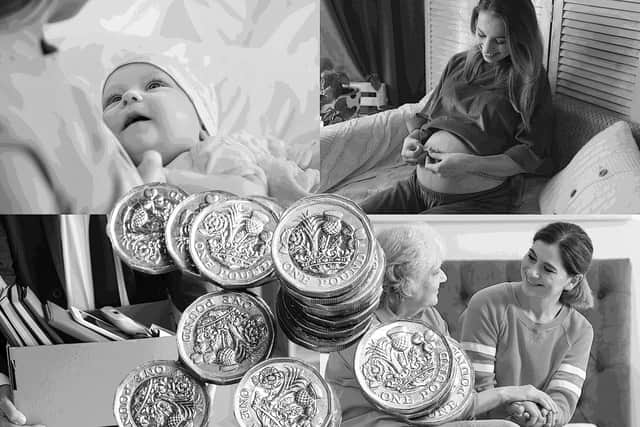By Emily Caulkett-
Low-income households are now starting to receive the latest cost-of-living payment from the government to tackle ongoing high bills.
The £301 instalment is to be paid between now and 17 May.
The three means-tested Cost of Living Payments, worth up to £900 in total, will be delivered in three slightly different amounts, each relating to a specific qualifying period before the payment is made. This allows DWP and HMRC to ensure support is targeted at those who need it and are eligible; to determine if a payee received the correct payments and identify the payment value; and to reduce the risk of fraud.
The payments come as food prices rise at their fastest rate for 45 years.
As the cost of living continues to affect families across the UK, these payments are designed to target support towards the most vulnerable in society and provide them with a financial boost.
The Department for Work and Pensions (DWP) will send payments automatically and directly to recipients’ bank accounts, with a reference of their National Insurance number followed by ‘DWP COL
The cost of the supermarket shop has kept inflation – the rate of rising prices – stubbornly high in the UK. A typical household’s energy bill also remains at £2,500 a year, although all of these bills are expected to drop later in the year.
Cost-of-living payments were originally introduced to help struggling families cope with the soaring cost of gas and electricity. Two payments totalling £650 were made last year.
However, they were never exclusively targeted at these bills, and households could always spend the money as they saw fit. Many are likely to use the latest instalment to cover the cost of putting food on the table.
The latest £301 will be paid directly into eligible recipients’ bank accounts, without the need to make a claim. It is £301 to distinguish it from the next two instalments which will be for £300 and £299.
The payment reference for bank accounts will be the recipient’s National Insurance number, followed by DWP COL.
Those who qualify for the money solely through tax credits will receive their cost-of-living payment from 2 May.
In addition, during the summer, more than six million people with disabilities will get an extra £150. During next winter, over eight million pensioners will receive an extra £300.
In order to qualify for a payment, you must receive one of Universal Credit, Income-based Jobseekers Allowance, Income-related Employment and Support Allowance, Income Support, Working Tax Credit, Child Tax Credit, or Pension Credit.
You will need to have been entitled to a payment for one of these benefits between 26 January and 25 February 2023, or payment for an assessment period ending between these dates.
Low-income pensioners who are eligible for, but not claiming Pension Credit, can still qualify for the cost-of-living payment if they make a successful backdated Pension Credit application by 19 May.
Many households will be using less gas during the coming warmer months, and the lights will be on less during the longer days. That, for some, will mean lower bills, although the difference is generally smoothed out for those who pay for energy via direct debit.
The likelihood is that bills could fall in the summer, as lower wholesale energy costs paid by suppliers feed through to consumers.
Here are some energy saving ideas from environmental scientist Angela Terry, who set up One Home, a social enterprise that shares green, money-saving tips.
The Department for Work and Pensions (DWP) will send payments automatically and directly to recipients’ bank accounts, with a reference of their National Insurance number followed by ‘DWP COL’.
This builds on the significant cost of living support already provided to eligible households throughout 2022 – now worth an average of £3,300 per household over this year and last.
Those entitled do not need to do apply for the payment or do anything to receive it. Payments made during this window will be staggered over the next couple of weeks meaning not everyone entitled to receive a payment will receive it today.
Mel Stride, Secretary of State for Work and Pensions, said:
”This latest additional payment will be welcomed by millions of families – as will further payments due over the next year.
We have continually supported those most vulnerable to rising costs, including through record benefits and national living wage increases as well as these exceptional Cost of Living Payments responding to the global pressures we are facing.
We will also continue to deliver on our five priorities, including halving inflation, as this will ease pressure on households currently struggling with household bills and rising prices”.
Jeremy Hunt, Chancellor of the Exchequer, added:
‘The best thing we can do to help people’s money go further is deliver on our priorities to halve inflation and grow the economy.

